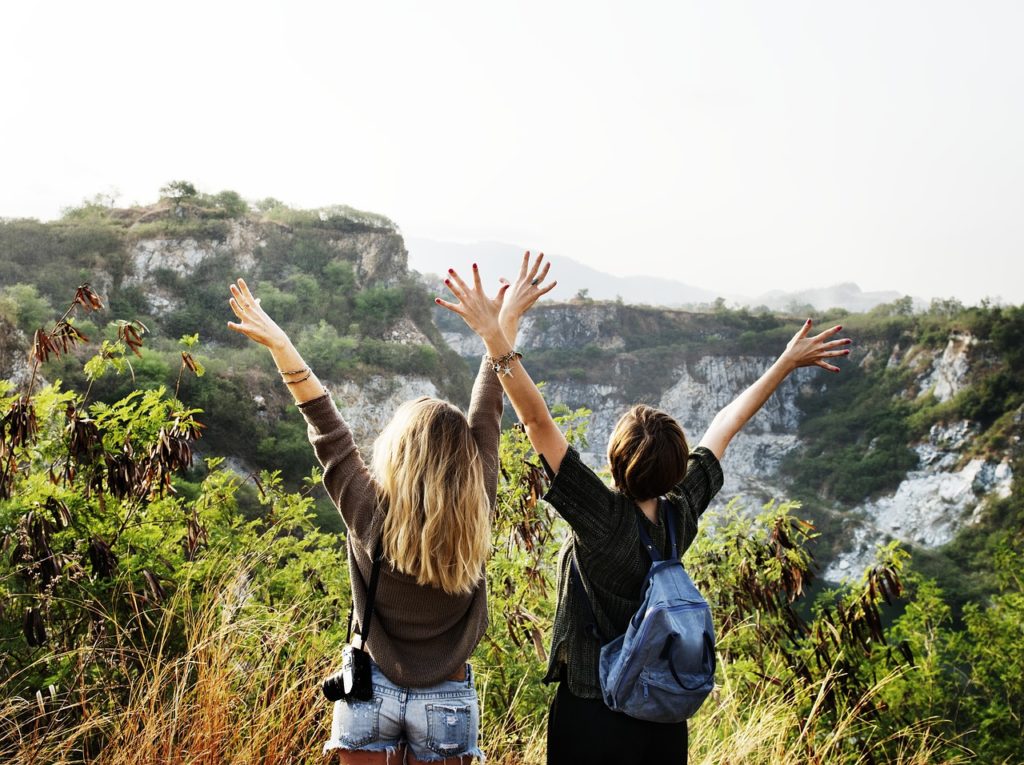Table of Contents
Hiking is a great type of physical activity to help you maintain your health and to improve your cardiovascular system. If you are planning on hiking for multiple days, then you should know how to cope with the overnight hiking to remain safe and hydrated.
Here are some hiking health recommendations from the individuals who routinely go on long hiking adventures.

Have Multiple Flashlights
While hiking overnight, you should have multiple flashlights along with extra batteries. A good flashlight can help you to walk on a path without incurring an injury, and it will also alert any wildlife in the area.
This can prevent problems like attacks from animals that can include bears or coyotes. Most wild animals will avoid you when you are hiking, especially when the creatures are aware that you are a human.
Travel in a Group
It is a good idea to travel in a group when you are hiking at night. You will make enough noise that the animals in the area will likely avoid you, and if you have any problems, then there is someone there to assist you.
In addition, you and your hiking friends can share the burden of carrying heavier items that are needed for the adventure.
A Way to Call for Help
You should bring along your phone while hiking at night, and to ensure that it will connect from an isolated region, you should have a cell phone signal booster installed. This service improves the voice clarity and signals from remote regions of the United States and Canada, making it easier to request help from forest rangers, paramedics or other individuals.
Dress Appropriately for the Weather and the Season
Make sure to dress appropriately for the season and the weather to avoid any health issues from the cold or the heat. Layering your clothing is a great option so that you can remove a jacket or an extra pair of socks when it is warmer.
You can find clothing that is easy to fold for storage in your backpack. Don’t forget to bring along a rain poncho so that you can cover your body and your backpack.
Nonperishable Food and Clean Drinking Water
You must remain hydrated while hiking to avoid feeling dizzy or sick. There are lightweight canteens that you can fill with water, or you may prefer bottled drinking water instead. Remember that you will need to drink more water when you are physically active.
In addition, bring along non-perishable food that doesn’t require any cooking so that you can maintain your energy levels.
Caring for Your Feet
Caring for your feet while hiking is essential, so you should choose high-quality shoes or boots. A good pair of boots can also protect your ankles while you are hiking. Wear thick socks that will absorb perspiration to avoid developing any blisters on your feet. Make sure to take plenty of rests, and to break in your boots before taking them on a long hike.
A blister or twisted ankle can spell disaster and even be deadly if it impedes your ability to get home from the mountains. Don’t attempt to jump from rock to rock or pull dangerous stunts.
Hiking is a fun activity, but it can be dangerous, especially for those unprepared for a long overnight hike. Remember to bring along plenty of light, food, and water, to travel with a group and have ways to contact emergency services, and to care for your feet.
A hike should be strenuous, but not so difficult that it endangers you or others. Make sure to have the help of other experienced hikers when going on an overnight hike for the first time. Eventually, you will have the confidence and skill to help support and teach other new hikers as well.
Hiking is a rewarding activity that can give you a sense of adventure and fulfillment, but make sure to think of your safety first. Follow these tips to have a safe and fun experience.
About Author: Brooke Chaplan is a freelance writer and blogger. She lives and works out of her home in Los Lunas, New Mexico. She loves the outdoors and spends most of her time hiking, biking, and gardening. For more information, contact Brooke via Facebook at facebook.com/brooke.chaplan or Twitter @BrookeChaplan















